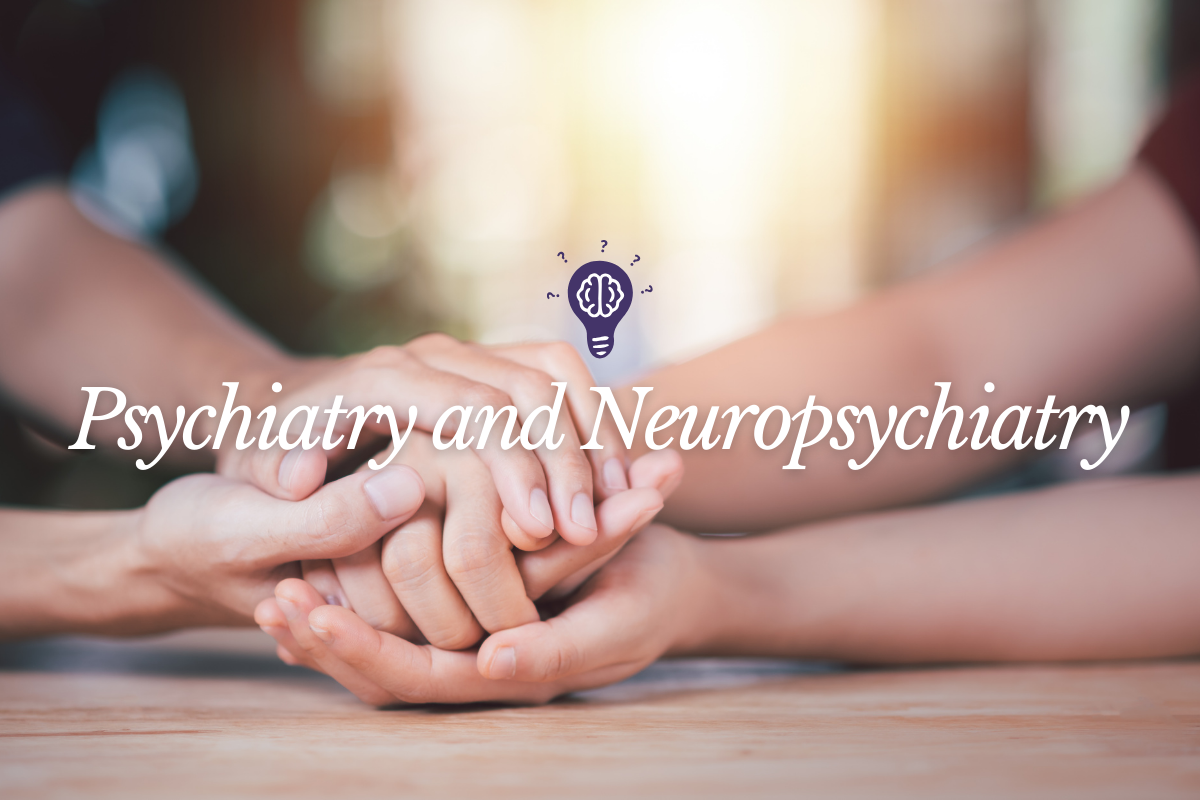Mental health services have become increasingly important in recent years, especially in places like Connecticut, where the demand for such services is growing. This guide aims to provide a detailed look into psychiatry and neuropsychiatry, explaining their significance and highlighting Connecticut’s unique mental health care aspects.
Introduction to Psychiatry
Psychiatry is a medical field focused on diagnosing, treating, and preventing mental, emotional, and behavioral disorders. Psychiatrists are medical doctors who use various treatments, including medication and psychotherapy, to help people manage and improve their mental health. They treat conditions such as mood disorders, anxiety, schizophrenia, and bipolar disorder.
Overview of Psychiatry and Neuropsychiatry in Connecticut
Connecticut has a strong reputation for its mental health services, with some of the leading psychiatric and neuropsychiatric institutions in the country. The state offers various services, from inpatient and outpatient care to community-based support and advanced research facilities. Notable institutions like the Institute of Living in Hartford and the Yale Psychiatric Hospital in New Haven are key players in this landscape.
In Connecticut, there is a strong collaboration between psychiatry and neuropsychiatry, reflecting a broader trend toward integrated and holistic approaches to mental health. This synergy ensures that patients receive personalized and effective care.
As we delve deeper into this guide, we will explore various aspects of psychiatry and neuropsychiatry, providing valuable insights for patients, caregivers, and mental health professionals.
Understanding Psychiatry
Definition and Scope of Psychiatry
Psychiatry focuses on diagnosing, treating, and preventing mental health disorders. Unlike other medical fields that deal primarily with physical ailments, psychiatry addresses conditions affecting the mind and behavior. Treatments can include medications, psychotherapy, and other therapeutic techniques. Psychiatrists work in diverse settings, including hospitals, private practices, mental health clinics, and academic institutions.
History of Psychiatry
The history of psychiatry is rich and complex, evolving significantly over the centuries. Early approaches to mental illness were often based on superstition. However, significant strides were made in the 18th and 19th centuries with more humane treatment methods and the establishment of mental health institutions.
One key figure was Philippe Pinel, a French physician who advocated for the humane treatment of the mentally ill in the late 18th century. The 20th century saw further evolution with the advent of psychopharmacology, introducing medications like antipsychotics and antidepressants, revolutionizing treatment and allowing many patients to live more stable lives.
Key Concepts in Psychiatry
Several key concepts form the foundation of psychiatric practice:
- Biopsychosocial Model: This model suggests that mental health disorders arise from a combination of biological, psychological, and social factors.
- Diagnosis and Classification: Standardized diagnostic tools, such as the DSM-5, ensure consistency and accuracy in diagnosing mental health conditions.
- Therapeutic Alliance: Building trust between the psychiatrist and the patient is crucial for effective treatment.
- Evidence-Based Practice: Treatments are guided by scientific research and clinical evidence.
- Ethics and Confidentiality: Ethical considerations are paramount, including patient confidentiality and informed consent.
Understanding Neuropsychiatry
Definition and Scope of Neuropsychiatry
Neuropsychiatry is a specialized field that bridges psychiatry and neurology, focusing on mental disorders arising from neurological conditions. Neuropsychiatrists are trained in both fields and treat conditions like traumatic brain injuries, epilepsy, stroke, and neurodegenerative diseases.
Psychiatry in Connecticut
History of Psychiatry in Connecticut
Connecticut has a long history in psychiatry, with some of the first mental health institutions in the United States. Notable milestones include the Connecticut Hospital for the Insane (now Connecticut Valley Hospital) established in 1868, and the Institute of Living in Hartford founded in 1822. These institutions have been pivotal in advancing psychiatric care in the state.
Major Psychiatric Institutions in Connecticut
- Institute of Living, Hartford: One of the oldest mental health centers in the U.S., offering a comprehensive range of services.
- Yale Psychiatric Hospital, New Haven: Provides a wide array of psychiatric services and is a hub for research and education.
- Connecticut Valley Hospital, Middletown: Offers various mental health services, including acute care and long-term care.
- Natchaug Hospital, Mansfield Center: This hospital specializes in psychiatric and substance abuse treatment and offers programs for different age groups.
Notable Psychiatrists in Connecticut
- Dr. John M. Grohol: Founder of Psych Central, increasing public awareness and understanding of mental health issues.
- Dr. Harold I. Schwartz: Known for his contributions to trauma and recovery at the Institute of Living.
- Dr. J. Russell Ramsay: An expert in ADHD treatment, influencing practices in Connecticut and beyond.
- Dr. James F. Leckman: Renowned for his research on Tourette syndrome and obsessive-compulsive disorder at Yale University.
Common Psychiatric Disorders
Depression
Depression is characterized by persistent sadness and a lack of interest in activities. Symptoms include:
- Persistent sad or empty mood
- Loss of interest in activities
- Feelings of hopelessness
- Difficulty concentrating
- Changes in sleep and appetite
Treatment
- Medication: Antidepressants such as SSRIs and SNRIs.
- Psychotherapy: Cognitive-behavioral therapy (CBT) and interpersonal therapy (IPT).
- Lifestyle Changes: Regular exercise, healthy eating, and maintaining a sleep schedule.
Anxiety Disorders
Anxiety disorders involve excessive fear or worry that can interfere with daily activities. Symptoms include:
- Excessive worry
- Restlessness
- Fatigue
- Difficulty concentrating
Treatment
- Medication: Anti-anxiety medications and antidepressants.
- Psychotherapy: CBT is particularly effective.
- Lifestyle Changes: Stress management techniques and regular exercise.
Bipolar Disorder
Bipolar disorder is characterized by extreme mood swings. Symptoms include:
- Manic Phase: Increased energy, euphoria, risky behavior.
- Depressive Phase: Persistent sadness, fatigue, loss of interest.
Treatment
- Medication: Mood stabilizers, antipsychotics, and antidepressants.
- Psychotherapy: CBT and psychoeducation.
- Lifestyle Changes: Regular routines and stress management.
Schizophrenia
Schizophrenia affects how a person thinks, feels, and behaves. Symptoms include:
- Hallucinations
- Delusions
- Disorganized thinking
- Negative symptoms
Treatment
- Medication: Antipsychotics.
- Psychotherapy: CBT and supportive therapy.
- Support Services: Vocational and social skills training.
Obsessive-Compulsive Disorder (OCD)
OCD involves unwanted thoughts (obsessions) and repetitive behaviors (compulsions). Symptoms include:
- Repeated unwanted thoughts
- Repetitive behaviors to reduce anxiety
Treatment
- Medication: SSRIs.
- Psychotherapy: Exposure and response prevention (ERP) therapy and CBT.
Post-Traumatic Stress Disorder (PTSD)
PTSD develops after experiencing a traumatic event. Symptoms include:
- Intrusive thoughts and nightmares
- Avoidance of reminders of the trauma
- Changes in mood and cognition
Treatment
- Medication: Antidepressants.
- Psychotherapy: Trauma-focused therapies like CBT and EMDR.
- Support Services: Group therapy and support groups.
Diagnostic Approaches in Psychiatry
Psychiatric Evaluation
A psychiatric evaluation involves a detailed interview, mental status examination, collateral information, and possibly a physical exam to gather comprehensive information about the patient’s mental health.
Psychometric Testing
Psychometric tests assess various psychological and cognitive functions. Examples include personality tests (e.g., MMPI), cognitive tests (e.g., WAIS), and symptom-specific tests (e.g., BDI for depression).
Neuroimaging in Psychiatry
Neuroimaging techniques like MRI, fMRI, PET, and EEG provide valuable insights into brain structure and function, aiding in the diagnosis and understanding of mental health disorders.
Empowering Mental Health: Personalized Care at Contemporary Care Centers

Take control of your Mental Health journey with Contemporary Care Centers. Our expert team utilizes a holistic approach, including psychiatric evaluations, psychometric testing, and neuroimaging, to provide personalized care that addresses your unique needs. Don’t wait any longer to prioritize your well-being—contact us today to start your path towards improved mental health and a better quality of life.



